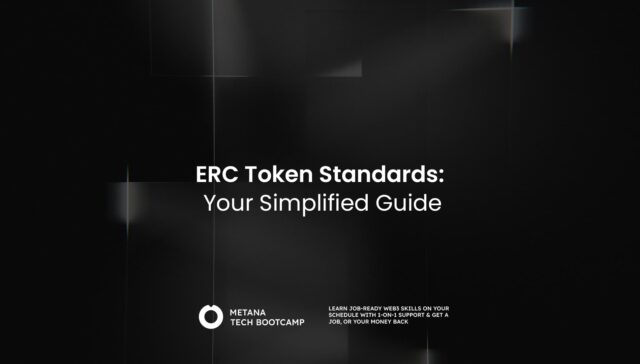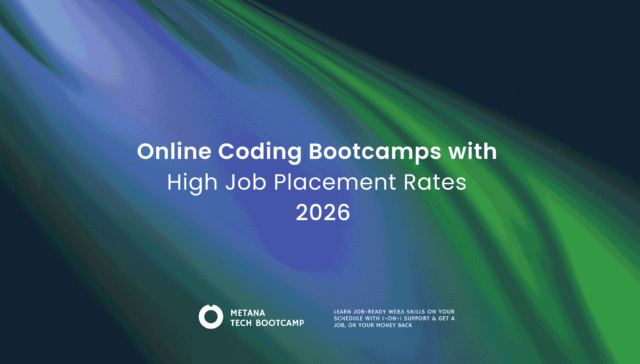TL; DR
- Blockchain is a decentralized, secure digital ledger used in crypto, DeFi, NFTs, and more.
- It’s driving high-growth tech careers in 2025, including developers, analysts, and architects.
- AI and blockchain are merging, enabling smarter contracts, secure data, and transparent automation.
- New hybrid roles like AI Blockchain Engineer and Smart Contract Auditor with AI are emerging.
What Is Blockchain?
Blockchain is a decentralized, immutable digital ledger that records transactions across a network of computers. Each transaction is grouped into a “block,” and every new block links to the previous one forming a chain of data that is:
- Secure through cryptographic hashing
- Transparent because all participants can view the ledger
- Tamper-proof due to its distributed nature
Unlike traditional systems that rely on central authorities (e.g., banks or governments), blockchain enables peer-to-peer interactions without intermediaries.
Common Use Cases for Blockchain
- Cryptocurrencies like Bitcoin and Ethereum
- Decentralized Finance (DeFi) platforms like Uniswap and Aave
- Non-Fungible Tokens (NFTs) for digital ownership
- Supply chain tracking
- Identity verification and digital voting
According to market forecasts, blockchain is expected to reach a value of $469 billion by 2030, making it a high-growth sector for tech professionals.
Top Blockchain Tech Careers in 2025
Blockchain offers a variety of roles for developers, analysts, architects, and engineers. These jobs are not only high in demand but also offer excellent compensation and career growth.
1. Blockchain Developer
Responsibilities:
Develop decentralized applications (dApps), write smart contracts in Solidity, and deploy them to blockchains like Ethereum.
Skills required:
- Solidity
- Web3.js or Ethers.js
- Truffle/Hardhat frameworks
- Understanding of EVM (Ethereum Virtual Machine)
Example:
Create a DeFi lending app that allows users to borrow tokens by depositing collateral.
2. Blockchain Analyst
Responsibilities:
Monitor, analyze, and interpret on-chain activity. Detect fraudulent behavior, optimize protocol performance, and generate actionable insights.
Skills required:
- Python or SQL
- Blockchain explorers (e.g., Etherscan)
- Tools like Dune Analytics, Nansen
Example:
Analyze NFT marketplace data to detect wash trading or front-running behavior.
3. Blockchain Architect
Responsibilities:
Design and implement secure, scalable blockchain infrastructures tailored to enterprise use cases.
Skills required:
- Consensus algorithms
- Cryptography
- Network architecture
- Cloud services (AWS, Azure, etc.)
Example:
Design a blockchain-based supply chain network that tracks goods from factory to shelf with full traceability.
Blockchain and AI: A Powerful Tech Fusion
Artificial Intelligence (AI) and blockchain are each transformative, but their combination is redefining how modern systems operate.
- Blockchain offers data integrity, transparency, and decentralization
- AI brings automation, learning, and pattern recognition
Together, they’re enabling smarter, more trustworthy systems.
Real-World Applications of Blockchain + AI
- AI-Powered Smart Contracts
Smart contracts can dynamically respond to real-world data using AI. For instance, a DeFi platform could use AI to adjust lending rates based on market predictions. - Blockchain-Secured AI Models
AI models and their training data can be stored and verified on-chain to prevent tampering and enhance trust—especially in critical sectors like healthcare and finance. - Auditable AI Decisions
AI-generated decisions (like credit scoring or loan approvals) can be logged on a blockchain for transparency and regulatory compliance. - Decentralized AI Marketplaces
Platforms where users share and monetize AI models while protecting data ownership using blockchain.
Emerging Careers Combining Blockchain and AI
The convergence of blockchain and AI is giving rise to a new class of hybrid careers. These roles require interdisciplinary knowledge and are among the most exciting tech positions in 2025 (Source: GlassDoor)
| Role | Description | Key Skills | Avg. Salary |
|---|---|---|---|
| AI Blockchain Engineer | Develops dApps powered by AI models (e.g., predictive DeFi contracts) | Solidity, Python, TensorFlow | $120K–$180K |
| Smart Contract + AI Auditor | Uses machine learning to detect bugs and vulnerabilities in smart contracts | Solidity, Slither, ML frameworks | $90K–$140K |
| Decentralized AI Product Manager | Designs platforms that combine AI intelligence with blockchain’s security | Cryptography, product strategy, ML tools | $100K–$150K |
How to Learn Blockchain and AI Together
Learning both blockchain and AI might seem overwhelming at first, but breaking it down into manageable steps can make it approachable—even for beginners.
1. Start with Blockchain Development
Tools & Resources:
- CryptoZombies.io: A gamified way to learn Solidity
- Metana.io: Full-stack Web3 bootcamps, Solana blockchain bootcamps
- Ethereum Testnets: Use Sepolia testnet to deploy smart contracts without spending real ETH
2. Learn the Basics of Artificial Intelligence
Beginner-Friendly Platforms:
- Coursera – AI for Everyone by Andrew Ng
- DataCamp – Python for Data Science
- Google Colab – Run Python-based ML code in the cloud
- OpenAI API – Build intelligent apps using GPT models
Start With:
- Supervised learning
- Regression and classification models
- Natural language processing (NLP)
3. Build Combined AI + Blockchain Projects
Once you’ve built comfort with both skill sets, create hybrid applications to demonstrate your knowledge.
Project Idea:
AI-Powered DeFi App
- Use a Python model to predict ETH gas prices
- Display real-time data in a Power BI dashboard
- Fetch on-chain data from Etherscan API
- Integrate predictions into a smart contract for dynamic fee adjustments
Blockchain and AI’s Role in the Future of Tech Careers
Blockchain is reshaping the digital economy by enabling decentralized, secure, and transparent ecosystems. Combined with AI, it’s unlocking a new era of intelligent, automated, and verifiable systems across industries.
In 2025, professionals who understand both blockchain fundamentals and AI principles will be among the most sought-after in the tech world.
Key Takeaways
- Blockchain powers decentralized and transparent systems and is expanding across sectors like finance, logistics, and healthcare.
- Career opportunities in blockchain include developers, analysts, architects, and emerging hybrid roles with AI.
- Artificial Intelligence complements blockchain by enabling automation, predictions, and smarter contract functionality.
- Learning both blockchain and AI is highly achievable through online platforms, testnets, and hands-on project building.
- Real-world experience with tools like Solidity, Python, Sepolia testnet, and OpenAI API will set you apart.
FAQs
Is blockchain still a good career in 2025?
Yes. With rising adoption and innovation in Web3, blockchain remains a high-growth, high-demand field for tech professionals.
What jobs combine AI and blockchain?
Roles like AI Blockchain Engineer, Smart Contract Auditor with AI tools, and Decentralized AI Product Manager are in demand.
Do I need to learn both AI and blockchain?
You can start with one, but learning both opens more advanced and future-ready career paths.
Where can I start learning blockchain and AI together?
Use platforms like CryptoZombies, Metana.io, Coursera, and Google Colab. Practice utilizing testnets (e.g., Sepolia) and real datasets.







